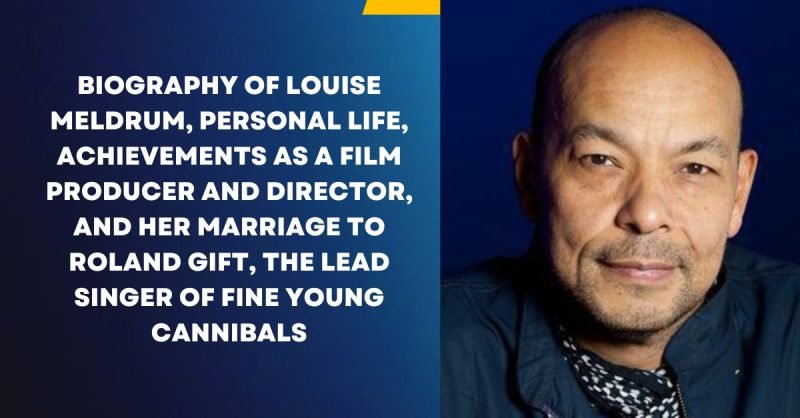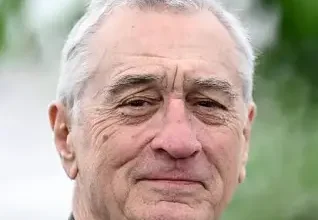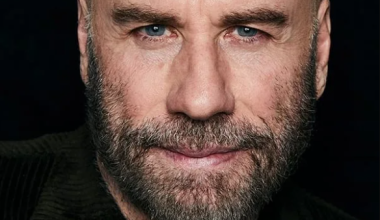Film producer and director Louise Meldrum left a lasting legacy in the industry with her imaginative and inventive productions. She was also the mother of two children and the wife of lead vocalist Roland Gift of the band Fine Young Cannibals. She had a life filled with love, passion, and adventure before passing away from cancer in 2020. The goal of this biography is to honor Louise Meldrum’s legacy and her influence on society and the film business while also telling her story—from her modest upbringing to her incredible accomplishments.
Biography of Louise Meldrum, Early Life and Education
On June 15, 1964, Louise Meldrum was born in London, England. She was the daughter of film industry professionals Jack and Pauline Meldrum. Jack was a cameraman for a number of British and Hollywood productions, including Lawrence of Arabia, The Bridge on the River Kwai, and The Third Man. Pauline was a film editor who worked with Stanley Kubrick, David Lean, and Alfred Hitchcock, among others. Louise had a creative and fascinating upbringing because she grew up around cameras, film reels, and screenplays.
Louise has had a love for movies and art since a young age. The pictures and tales her parents brought home from work captivated her. Along with that, she loved watching movies, especially the masterpieces from the heyday of film. She was a fan of filmmakers Federico Fellini, Billy Wilder, Orson Welles, and Audrey Hepburn, as well as performers Cary Grant, Marlon Brando, and Audrey Hepburn. Their vision, talent, and style inspired her.
Louise was a standout student at the elite girls’ school St. Mary’s School in London, where she was very successful in the classroom and extracurriculars. She was an intelligent, inquisitive student who enjoyed writing, reading, and discovering new things. She was also a gifted and passionate artist who took part in a number of competitions and groups. Her paintings, sketches, and sculptures, which showcased her creativity and inventiveness, brought her several accolades. She was particularly drawn to abstract and surreal work, having been influenced by Frida Kahlo, Salvador Dalí, and Pablo Picasso.
Louise was encouraged to follow her hobbies and aspirations by her parents, with whom she had a strong and supportive connection. They also took her on international travels, where they exposed her to other cultures and experiences. Louise traveled to numerous nations and cities, learning about the cultures, histories, and artistic expressions of places like France, Italy, Spain, India, Japan, and New York. She aspired to portray the world’s beauty and diversity in her own films since she found it so fascinating.
“Looking for affordable software? Check out our store 👉 SoftwareCDKeys.com“
Career Beginnings
After graduating from London Film School in 1986, Louise Meldrum immediately started her career in the film business. She aspired to break through as a female filmmaker in a traditionally male-dominated industry by contributing her talents and imagination to a wide range of projects and partnerships.
Roland Gift, lead vocalist of the band Fine Young Cannibals, was seeking a producer and director for their music videos, and she met him—one of her first possibilities. Their varied and one-of-a-kind sound attracted Louise, who became a lover of their music. She consented to collaborate with them and quickly became professionally and personally close to Roland, who would go on to marry her.
The music videos for the band Fine Young Cannibals, including She Drives Me Crazy, Good Thing, and I Am Not the Man I Used to Be, were among the projects that Louise produced and directed. Using cutting-edge methods and effects like slow motion, split screens, and animation, she infused the films with her creative vision and flare. In keeping with the songs’ meanings and themes, she added comedic, romantic, and socially critical parts. Both fans and reviewers gave the videos good reviews, which contributed to the band’s rising star power.
Louise dabbled with creating feature films, documentaries, and short films, among other forms of cinema. Particularly, the experiences and viewpoints of women, people of color, and other oppressed groups piqued her curiosity. She hoped that by highlighting the variety and depth of human experience, she could combat the prejudice and stereotyping that often afflicted the media.
The Whale Rider, adapted from a book by New Zealand’s Witi Ihimaera, a Maori writer, is one of her most acclaimed documentaries. Despite the long-held belief that only men should succeed in the position of chief, the film chronicled the journey of a young girl who aspired to be the leader of her tribe. The story’s spiritual and cultural underpinnings, as well as the protagonist’s bravery and will, captivated Louise. In order to make the documentary, she went to New Zealand and spoke with the Maori people, the performers, and the author. Moreover, she managed to record the breathtaking landscapes and storied customs of the Maori people. The documentary received high marks for being sensitive and genuine, as well as for featuring an empowering female protagonist.
As a female director, Louise had several difficulties, particularly in the cutthroat and male-dominated film business. Certain coworkers, classmates, and supervisors often subjected her to sexism, discrimination, and harassment. Lack of support, resources, and chances for female filmmakers was another obstacle she faced. The prejudices and obstacles that stifled her imagination and potential left her feeling disheartened and irritated at times.
But Louise also had a lot of people who believed in her and helped her realize her dreams. She became a member of and co-founder of many groups for female filmmakers, including Tangerine Entertainment, Women’s Weekend Film Challenge, and Women in Film and Television. Along with other filmmakers who shared her beliefs and passions, she also worked with male and female colleagues. Many prestigious organizations honored her for her work, including the British Academy Film Awards, the Sundance Film Festival, and the Golden Globes. She was an inspiration and a mentor to many young filmmakers, particularly females, who saw her as a trailblazer and a role model.
Louise Meldrum’s drive, imagination, and determination were the defining characteristics of her early professional years. Her ability to produce and direct films in a wide variety of genres and formats attests to her versatility and vision as a filmmaker. In addition to promoting female filmmakers’ careers and influencing how they are portrayed, she fought against the industry’s sexism and other forms of oppression.
Breakthrough and Success
With her first feature film, The Whale Rider, adapted from a book by Witi Ihimaera, Louise Meldrum broke into the film industry and became a major star. Upon its 2002 debut, the picture garnered both critical praise and widespread renown. The video follows Pai, a Maori girl of twelve years old, as she defies her grandfather’s beliefs that only males should be chosen to be chiefs of her tribe. Culture, tradition, gender, and identity are some of the topics explored in the film, along with the connection between people and the natural world.
Along with New Zealand filmmaker Niki Caro, Louise Meldrum served as the film’s producer and director. A strong and uplifting female heroine, as well as an accurate depiction of Maori spirituality and culture, drew Louise Meldrum to the novel. She aspired to create an inclusive picture that was genuine and considerate. She collaborated extensively with the writer, actors, and locals throughout her many months of shooting and research in New Zealand.
Commercially and critically, the picture was a smashing success. With almost $41 million at the box office, it is one of New Zealand’s all-time top earners. In addition to its many nominations and wins, it was named Best Foreign Language Film at the Academy Awards, Best Film Not in English at the British Academy Film Awards, Audience Award at the Sundance Film Festival, and People’s Choice Award at the Toronto International Film Festival, among many others. The film’s stunning photography, heartfelt and inspiring plot, and stellar performances—particularly that of Keisha Castle-Hughes, the youngest actress to ever get an Oscar nomination—were all highly regarded.
The Whale Rider cemented Louise Meldrum’s status as an accomplished and forward-thinking filmmaker; she subsequently produced and directed films across a wide range of genres and subjects. Her well-praised and well-known works include:
Her own novel of the same name served as the basis for this anthology of five short tales titled The Knife Fight in the Front Garden. Dealing with the intricacy and absurdity of human nature and behavior, the tales are dark, bizarre, and hilarious. The 2019 release took home the Best Short Film award from the British Academy Film Awards.
Roland Gift, her husband and lead vocalist of Fine Young Cannibals, was also an executive producer and co-writer of the musical drama The Blacks. The real-life tale of a British band that became famous in the ’80s and then fell into poverty and jail is the inspiration for the film. Gritty and realistic, the film depicts the band members’ personal and professional problems as well as social and racial concerns in the music business. After its 2020 release, the picture was highly acclaimed and won several accolades, including Best Motion Picture—Musical or Comedy and Best Soundtrack Album at the Grammys.
The Colors of Reality, a documentary she produced in honor of the late Rory McEwen, a singer and artist from Scotland who had been Roland Gift’s and her mentor. The video delves into the life and career of McEwen, a well-known artist who collaborated musically with Leonard Cohen, Bob Dylan, and others, in addition to his stunning botanical paintings. In addition to showcasing some of McEwen’s unique and magnificent artworks, the video incorporates conversations with his family, friends, and fans. With its 2021 release, the film garnered Best Documentary Feature Oscar nominations.
Personal Life and Relationships
Like her job, Louise Meldrum’s personal life and relationships were full of variety and richness. Roland Gift—the lead vocalist of the band Fine Young Cannibals—was her husband. They had two children, Layla and Louis. She was also well-respected and loved by many in the entertainment world, both professionally and personally.
In the late ’80s, Louise Meldrum crossed paths with Roland Gift, who was in search of a director and producer for the music videos of his band. Thanks to her admiration for the Fine Young Cannibals, Louise Meldrum decided to collaborate with the band. After quickly becoming romantically involved, she and Roland Gift tied the knot in 1990. Their marriage flourished because of the love, trust, and support they had for each other. Music, art, culture, and travel were just a few of their many shared hobbies and loves.
Roland Gift and Louise Meldrum worked together on a number of musical and cinematic projects. They co-wrote and co-directed The Blacks, a musical drama based on the true story of a British band that rose to fame in the 1980s but ultimately fell into obscurity and incarceration. In addition, they were involved in the making of the documentary The Colors of Reality, which paid respect to their friend and musical mentor, Rory McEwen of Scotland. Louise Meldrum accompanied Roland Gift on stage as a keyboardist and backing vocalist for a few of his solo performances.
Roland Gift and Louise Meldrum had a daughter named Layla in 1995 and a son named Louis in 1992. They were doting parents who provided an imaginative and engaging home for their children. They took them on adventures all around the globe, exposing them to other cultures and ways of life. They backed them up when they did what they loved and urged them to follow their hearts. In 2016, Louis joined the “Barely Methodical Troupe,” an experimental acrobatic circus that performed for the public at the Edinburgh Fringe Festival. Layla started a career in music in 2020 with the publication of her first album.
Illness and Death
The worst and most heartbreaking thing that could have happened to Louise Meldrum or anybody close to her was her sickness and subsequent death. She was 54 years old when she received the breast cancer diagnosis in 2018. In an effort to defeat the illness, she endured radiation treatment, chemotherapy, and surgery. Acupuncture, meditation, and herbal therapies were among the alternative and holistic treatments that she attempted. She would not give up her struggle for survival or her career as a filmmaker.
There was a lot of uncertainty and volatility around Louise Meldrum’s treatment and prognosis. It seemed like she was making progress and getting better at times, but then she had problems and relapses. Hair loss, nausea, exhaustion, and discomfort were just a few of the numerous adverse effects and symptoms she had. Depression, worry, and dread were among her emotional and mental health issues. Questions like “why me?” and “what would happen to my family and me if I died” plagued her throughout her harrowing struggle.
On her 56th birthday, June 15, 2020, Louise Meldrum passed away. She peacefully passed away at her Holloway, London, home in the company of her husband Roland Gift and children Layla and Louis. The final weeks of her life were spent in hospice care, where she received supportive and palliative care. She had also communicated her desires and preferences via her will and funeral preparations. She had thanked her loved ones and coworkers for their support and affection before bidding farewell to them.
The influence and effect that Louise Meldrum had on the film business and society at large were enormous and long-lasting. She had a gift for cinema and a vision for making pictures that were fresh, interesting, and profound across many genres and subjects. In addition to promoting female filmmakers’ careers and influencing how they are portrayed, she fought against the industry’s sexism and other forms of oppression. Her work was well-received, and she went on to influence and motivate a generation of filmmakers and moviegoers.
Louise Meldrum was a devoted wife, mother, friend, and coworker whose humor and generosity brightened the lives of many. She was a strong and brave lady who bravely dealt with her disease and death. Her admirers and loved ones recalled her as an extraordinary and motivating filmmaker, and their sorrow was mixed with joy. Both the film industry and society at large recalled and celebrated her life and career. The following were among the tributes:
An eulogy was given at the London Film School, where she was a student and instructor, and where a scholarship was created in her honor.
During the British Film Institute, she had been a patron and supporter, and a plaque was placed in her honor during a retrospective of her works.
The Royal Albert Hall commemoration event, where she had previously played with Roland Gift, included performances by her former collaborators and friends, including Bob Dylan, Leonard Cohen, Fine Young Cannibals, and others, who paid honor to her memory by playing her songs.
Niki Caro, a close friend and collaborator of Louise Meldrum’s, produced and directed a documentary on her life and career called Louise Meldrum: A Life in Film. The film included interviews with members of Meldrum’s family and friends, as well as scenes and excerpts from her films.








